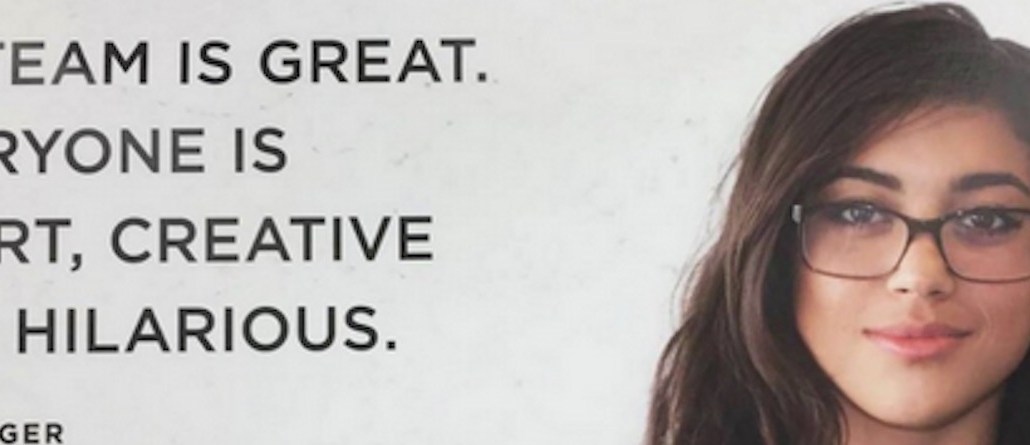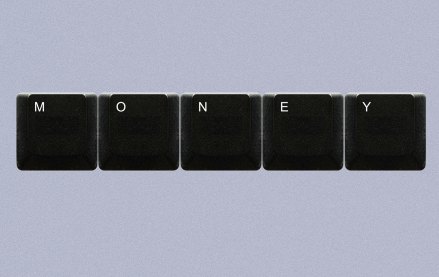
Isis Wenger started a revolution of the hashtag variety.
It all started when her face began appearing around San Francisco in a massive ad campaign for her employer, a tech company called OneLogin. Along with a picture of the 22-year-old, the ad features a quote on why she liked work there, reading “My team is great. Everyone is smart, creative and hilarious.”
The ads, however, drew backlash from jerks complaining that since she’s an attractive woman, she can’t possibly be a developer. “If their intention is to attract more women then [sic] it would have been a better to choose a picture with a warm, friendly smile rather than a sexy smirk,” complained one.
The reactions “illustrate solid examples of the sexism that plagues tech industry,” she wrote Saturday on Medium. “I’m sure that every other women and non-male identifying person in this field has a long list of mild to extreme personal offenses that they’ve had to tolerate.”
Irritated with the response, Wenger ended her post with the hashtag #ILookLikeAnEngineer encouraging Twitter users to smash the misconception that engineers are white males.
Just updated my Medium post! #iLookLikeAnEngineer pic.twitter.com/szMTCuRVu0
— Isis Anchalee (@isisAnchalee) August 3, 2015
The response has been overwhelming. Topsy measured 23,000 tweets — and growing — using the hashtag. Here are some of the most popular responses:
#ILookLikeAnEngineer who could use more sleep. No need to run my creds, I’ll still be an eng without your validation. pic.twitter.com/KhCBh8LPNL
— ¯\_(ツ)_/¯ (@EricaJoy) August 4, 2015
Just a few of the faces of @MITEngineering… Tweet yours with #ILookLikeanEngineer pic.twitter.com/JCLd6Fn2qU
— MIT (@MIT) August 4, 2015
I was one of the earliest engs @Pinterest; I’ve worked on infra, api, web, ads, homefeed & more #ILookLikeAnEngineer pic.twitter.com/vn0aS58JIv
— Tracy Chou (@triketora) August 4, 2015
#Ilooklikeanengineer Industrial Engineering Technician I enjoy walks on the beach & discussing theoretical physics :) pic.twitter.com/cY8zGZdnmB
— Yung Abeed (@JiggyJihad) August 4, 2015
#ILookLikeAnEngineer Love to build with Ruby on Rails & Ember.js, currently helping build Skynet at my 9-5 job, nbd. pic.twitter.com/6qXs4BzcK6
— Iheanyi Ekechukwu (@kwuchu) August 4, 2015
I enjoy low-level systems engineering. I study database theory. I’m a mentor to many. #ilooklikeanengineer. pic.twitter.com/uaFSaZge6e
— jonathan barronville (@jonathanmarvens) August 4, 2015
#MomOps to 3 {autism, T1 Diabetes, & Tethered Spinal Cord} Ops, Infrastructure, Full Stackaroni #ILookLikeAnEngineer pic.twitter.com/zcr3NrmfEK
— Carmen Caelestis (@Caelestisca) August 4, 2015
I’m female, wear pink and I’m pregnant. I’m also a full stack software engineer. #ILookLikeAnEngineer pic.twitter.com/3PV9BepNYy
— Jolene Hayes (@JCHayes) August 3, 2015
More in Media

From sidelines to spotlight: Esports events are putting creators center stage
Esports events’ embrace of content creators reflects advertisers’ changing priorities across both gaming and the wider culture. In the past, marketers viewed esports as one of the best ways to reach gamers. In 2025, brands are instead prioritizing creators in their outreach to audiences across demographics and interest areas, including gaming.

Condé Nast and Hearst strike Amazon AI licensing deals for Rufus
Condé Nast and Hearst have joined the New York Times in signing a licensing deal with Amazon for its AI-powered shopping assistant Rufus.

Media Briefing: AI payouts may be entering a new era
AI compensation is evolving — and new models, not just publisher demands, are driving the shift beyond flat-fee licensing.





